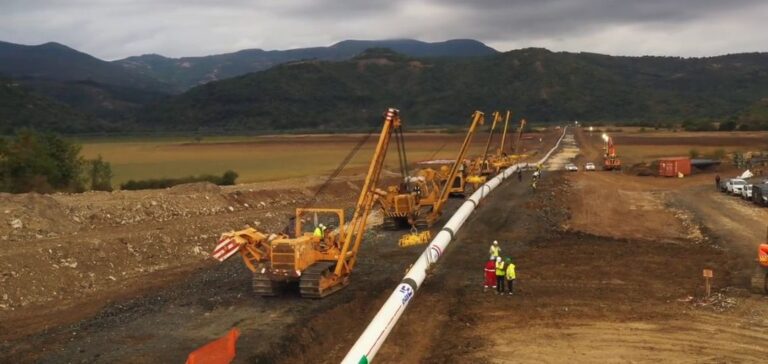The interconnector gas pipeline between Greece and Bulgaria, operated by ICGB, is set to increase its capacity from 3 to 5 billion cubic meters per year.
This decision comes despite limited market interest in reserving this additional capacity.
In October 2022, the pipeline began transporting Azerbaijani gas and regasified LNG from terminals in Greece and Turkey to Bulgaria and beyond.
According to an ICGB spokesperson, the extension is considered crucial both nationally and internationally, even though the results of the capacity reservation process in July 2024 were disappointing.
Commitment to the project remains strong, despite the challenges.
Alexandroupolis LNG Terminal Challenge and Delay Factors
The low demand for this additional capacity is due in part to the delay in commercial operation of the Alexandroupolis LNG terminal.
This terminal, essential for maximizing synergy with the pipeline, was originally scheduled to start operations at the end of April 2024, but has been postponed several times, with a new target date of October 2024.
The Alexandroupolis LNG terminal, operated by Gastrade, is designed to have a capacity of 5.5 billion cubic meters per year.
Its operation is vital to reach the full capacity of the gas pipeline between Greece and Bulgaria.
Market environment and gas prices
Other reasons for low demand include the uncertain market environment and lower Russian gas prices from Turkey, compared with European levels.
In July, Russian gas deliveries via the TurkStream pipeline to Southeast Europe reached their second-highest monthly level, increasing competition for the Greece-Bulgaria pipeline.
LNG prices for delivery to the Eastern Mediterranean also remain high, creating a complex dynamic for gas imports into the region.
Vertical Gas Corridor: A Strategic Project
The expansion of the gas pipeline between Greece and Bulgaria is part of the wider Vertical Gas Corridor initiative, aimed at increasing gas transport capacity in South-East, Eastern and Central Europe.
The aim is to enable a greater flow of Azerbaijani gas and regasified LNG via terminals in Greece and Turkey, with a target capacity of 10 billion cubic meters per year.
Regional gas network operators also conducted market tests for additional capacity along this route in July 2024, although the results were limited.
Discussions will continue in September to determine the next steps.
Perspectives and Financing
Discussions to finance these projects, including with US funds, are ongoing.
USAID plays a key role in energy security, and dialogues with the European Commission are also underway to explore various funding options.
In sum, despite the current challenges, the expansion of the gas pipeline between Greece and Bulgaria is an essential strategic step for the region’s energy security, reinforced by regional and international cooperation initiatives.






















